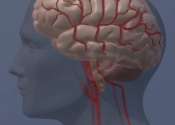3-D images reveal how infants' heads change shape during birth
Using Magnetic Resonance Imaging (MRI), scientists have captured 3-D images that show how infants' brains and skulls change shape as they move through the birth canal just before delivery. Olivier Ami of Auvergne University ...
May 15, 2019
0
53









